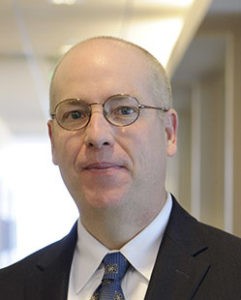As a cisgendered heterosexual male, my own sexuality was not a problem in the Southern Baptist faith of my youth and young adulthood. Having come of age with the Moral Majority, though, I cannot remember a time when the question of other people’s sexuality — or their homosexuality, more specifically — has not cast a long, troubling, shadow.
My own thinking remained fixed until a few years ago. I was convinced that being gay or lesbian in terms of sexual orientation was not sinful, as it was not a matter of choice, but that acting on those impulses was sinful. That did not mean, for me at least, that a person in a same-sex relationship could not be a Christian. Thankfully, even then, I was aware enough of the logs sticking out of my own eye to know that a church closed to sinners would sit entirely empty, in terms of both its pews and its pulpit. Its doors would most definitely be shut to me.

Chris Conley
Still, I believed that the holiness of marriage as a sacrament would be dangerously encroached upon by any sanctioning of same-sex unions by the church. It would be a loving of the sin, as well as a loving of the sinner. It was a line I thought could not, and should not, be crossed. In short, my own thinking largely tracked the pronouncement this week by the Vatican’s Congregation for the Doctrine of the Faith.
How my views changed
Where I once was, though, is not where I found myself over the last few years. I had watched too many churches come apart at the seams over this question and had shared my life with too many faithful, loving, Christians who happened to be gay or lesbian not to feel the need to prayerfully re-examine my own thinking.
Having done so, I have come to the belief that the church should bless loving same-sex marriages in the same way it blesses heterosexual unions. I do not cast stones at anybody who continues to hold the views I used to share or that the Vatican has declared anew this week, but I do want to share the three thoughts that have shaped my thinking and that have changed my own mind and my heart on this question — a question that is so crucial to so many of my brothers and sisters in Christ.
The first of these thoughts turns back to the matter of logs and specks, and the recognition that the church exists in a world that never looks exactly like God planned. As such, I candidly admit that I still suspect that same-sex sexual acts may be sinful to the extent that we define sin in keeping with the Vatican’s belief that homosexual relationships deviate from “God’s plan for marriage and family.” Again, though, even speaking from the experience of almost three decades of marriage to a wife I do not remotely deserve, I’m fairly confident that no marriage blessed by any church truly or completely mirrors “God’s plan for marriage and family.”
“I’m fairly confident that no marriage blessed by any church truly or completely mirrors ‘God’s plan for marriage and family.’”
I’m not just talking about the adultery and domestic abuse that is far too widespread in marriages between heterosexual Christians. I’m also thinking about the moments of petty jealousy, anger and selfishness that tend to rear their heads in even the best of marriages given the unfortunate fact that all marriages involve the union of two deeply flawed people desperately (and constantly) in need of God’s grace and forgiveness.
The more I pondered that fact, the less room I saw for a principled pronouncement that same-sex unions posed any more of a threat to the sanctity of marriage than did any other marriage formed by Christians inherently incapable of fully living into God’s perfect will or God’s original, pre-Fall, design.
About those ‘clobber verses’
Second, and for me, more important, where the Bible stands on the question of same-sex marriage is not as clear-cut as I initially believed. In this regard, I’m not of the school of thought that the few passages of Scripture that seem to pretty clearly condemn the morality of same-sex relations can simply be dismissed as so-called “clobber verses,” or that they can be wished away through tortured interpretation and highly selective wordsmithing.
Nonetheless, those verses seem to be given too much weight, all while ignoring the indisputable fact that Scripture as a whole, and especially the New Testament, is marked by a dramatic, evolving, bent toward grace and inclusion — one that seems to be constantly expanding God’s own definition of God’s people.
“The New Testament is marked by a dramatic, evolving, bent toward grace and inclusion.”
Eunuchs are not much of a current topic in the United States, but their treatment across Scripture is eye-opening and, at least to me, speaks loudly to this point. As a clear pronouncement of Mosaic law, all eunuchs were excluded from fellowship with God and with God’s people. See Leviticus 21:17 and Deuteronomy 23:1. Nonetheless, by the time of Isaiah, God was offering a word of hope in which God declared that eunuchs who covenanted with God would be found acceptable and would be given “an everlasting name that will endure forever.” See Isaiah 56:3-5.
Also, when we see Philip’s response in Acts 8:26-40 when asked by a eunuch, “What keeps me from being baptized?” we are not seeing Philip act out of a lack of knowledge of the Mosaic law. Instead, we see him act out of a clear understanding of a risen Christ and of the world-transforming power of an empty tomb.
We see Philip choose to live out the love of God rather than the judgment of the law. I am now firmly convinced that a church that makes that same choice must make room for all God’s children at its marriage altar, treating their sexuality as a slight matter when dealing with the all-powerful, ever-expansive love, grace and forgiveness of Christ.
God still speaks
Finally, and in a somewhat related vein, I was saddened to hear the (in my opinion) cramped notion of church reflected in the Vatican’s declaration that the Catholic Church “does not have and cannot have” the authority to bless or recognize same-sex unions.
“God is not a Netflix series that ran for two seasons.”
While I do not claim to have a perfect or full understanding of God, I’m firmly convinced that God is not a Netflix series that ran for two seasons (Old Testament and New Testament), but which has now been canceled and no longer can speak a new word to us about who God is or what God wants from the church. Such a view denies the reality of a living church indwelled by the living, still-speaking Spirit of God. That is the reality of the church we see in Acts — a church prayerfully seeking out a newly spoken word in response to real-life questions for which it found no clear answers in the already-spoken words of Scripture.
I believe much damage has been done to the church, and to our brothers and sisters in Christ, by Christians lacking faith in the idea that the church can yet listen for a new word from God and must stand ever willing to breathe that word into life by changing its mind. A church unable to do that is no longer the church; it is a museum. It is a church that worships a Christ still tightly entombed in the past, not a living Christ who still has a word to speak to his own.
Chris Conley is an attorney and graduate of the University of Georgia and of the Emory University School of Law. He and his wife, Mary, live in Athens, Ga., where both are members and deacons at First Baptist Church. They have one son, Aaron, who also is an attorney, and a miniature schnauzer, Oso, whose career path remains uncertain.
Related articles:
10 things we’re learning about the LGBTQ debate in the church | Opinion by Mark Wingfield
On LGBT: What I have learned since ‘Changing Our Mind’ | Opinion by David Gushee
My quest to find the word ‘homosexual’ in the Bible | Opinion by Ed Oxford


